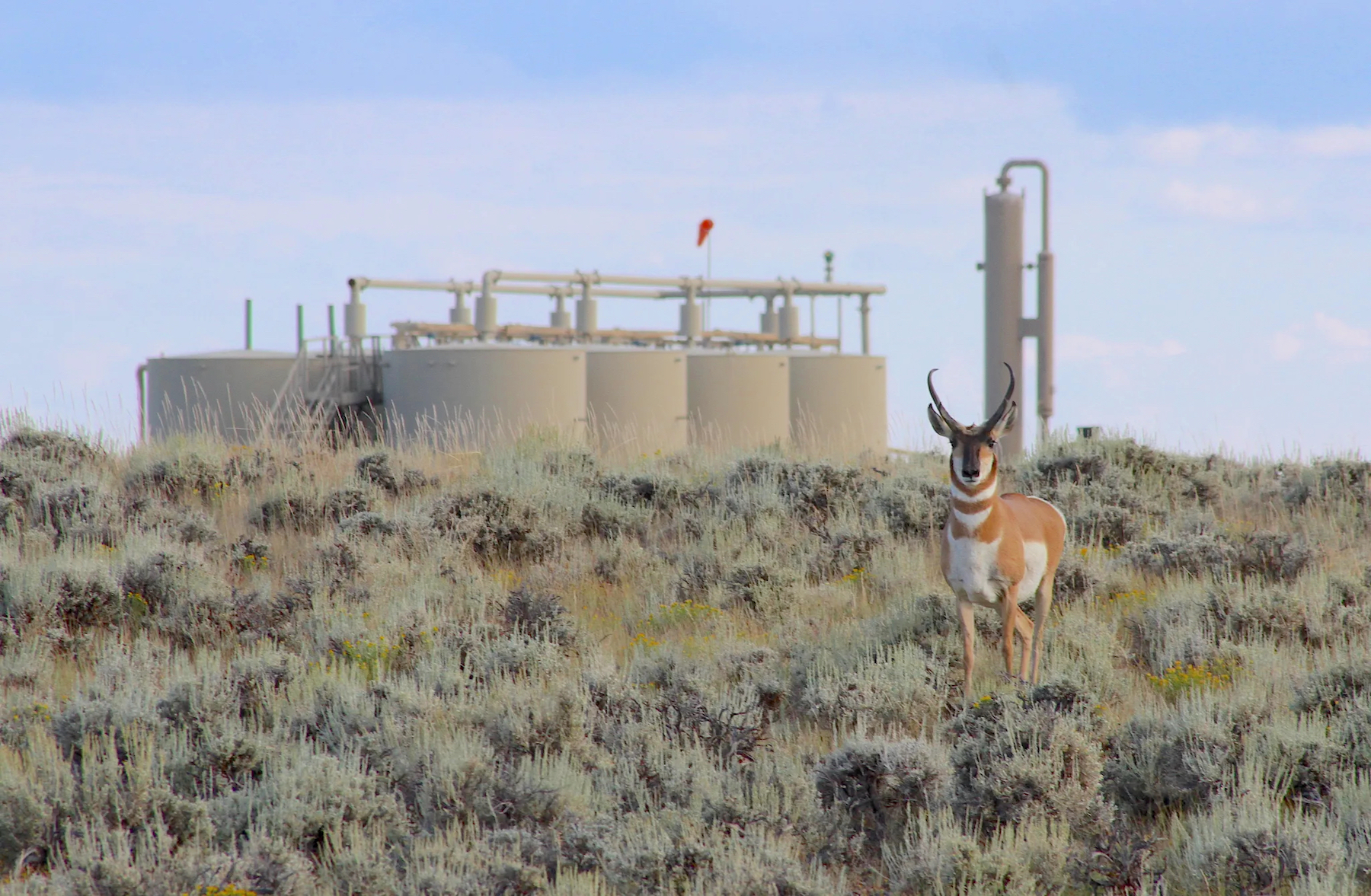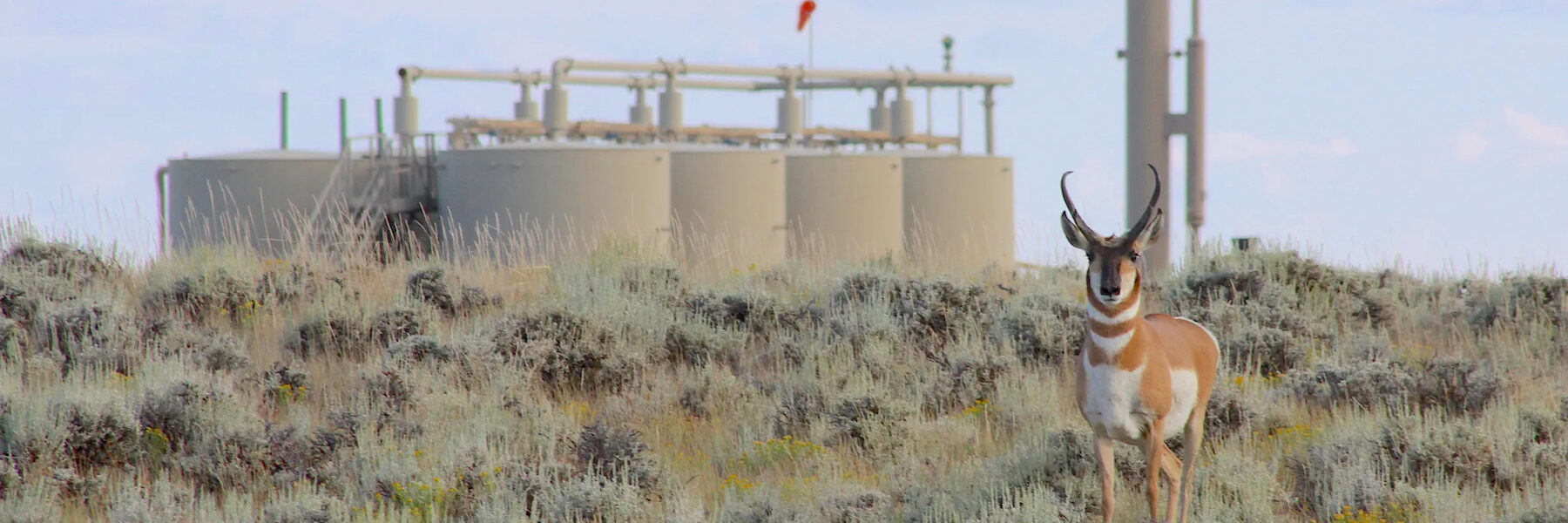
• The prohibition is in response to a conservation group that bid on a lease parcel in Sublette County intending to spare it from being developed.
By Dustin Bleizeffer, WyoFile.com
Wyoming has narrowed its definitions for who can bid on state oil and gas lease parcels, disqualifying parties that intend to conserve the land rather than produce the mineral resources.
The change, made under emergency rulemaking in June, was mandated by House Bill 141 – State land oil and gas leases-operator requirement, which the Legislature passed during the budget session. Rep. Cyrus Western (R-Big Horn) brought the bill on behalf of the Petroleum Association of Wyoming. The association raised concerns over the state’s vetting process after the Lander-based conservation group Wyoming Outdoor Council last July placed bids on a state oil and gas lease parcel in Sublette County intending to spare it from development.
If a small Wyoming conservation group can bid to block energy development, a conservation- or anti-oil-and-gas-minded billionaire could do the same, the trade association argued.
“So rather than wait for that to happen, we thought, ‘Well, let’s step in now and let’s put in place a bill that acts as a deterrent to doing that,” Petroleum Association of Wyoming President Pete Obermueller told WyoFile.
Ultimately, the winning bidder in last year’s controversial auction was Casper-based Kirkwood Oil and Gas — the same company that had nominated the parcel — at $19 per acre for the 640-acre tract. When the company later learned that it had been competing against a conservation group, the owners cried foul and claimed they were duped into paying an artificially inflated price.
The Wyoming Outdoor Council defends its actions.
Yes, council leaders say, the organization did bid on the controversial “Parcel 194.” But it didn’t skirt the rules or misrepresent its identity. The group expected that, if it was the winning bidder, it would pay about $12,000 for the lease (based on its $18 per acre bid) out of its own budget, according to Wyoming Outdoor Council Executive Director Carl Fisher. No well-heeled individual was on standby to finance the purchase, he told WyoFile.
The bidding controversy, he said, misses the larger issue: a lack of commitment by the state to implement its own policies that were crafted years ago to avert such conflicts in wildlife migration corridors.
Path of the Pronghorn
Kirkwood Oil and Gas had nominated a state lease parcel, 194, smack in the middle of the Path of the Pronghorn — a popular name for the long-distance migration of the Sublette Pronghorn Herd. It’s part of one of the most studied ungulate migration routes in North America, and the Path of the Pronghorn portion of the route is so named because it represents a “bottleneck” — an area squeezed due to rural development and landscape features.
And, critically, according to the council, Parcel 194 bisects the New Fork River where pronghorn cross.
Given the years of high-profile studies and discussions regarding the Path of the Pronghorn and many other well-documented ungulate migration routes in Wyoming, the group didn’t expect the state would OK oil and gas lease parcel nominations in the area for its competitive lease auction.
“To our surprise, they were going to offer an oil and gas lease directly in one of the most important spots where, like, thousands of these members of the Sublette pronghorn herd are crossing the New Fork River,” said Alec Underwood, the council’s program director.
In the weeks before the auction, the council and other conservation groups implored state officials and the Wyoming Game and Fish Department to intervene and convince the Office of State Lands and Investments to remove Parcel 194 and others inside the Path of the Pronghorn from the auction, according to Fisher. But the parcels were not removed.
At that point, Fisher said, the council felt it had no other choice.
“We had a conversation just to say, ‘Well, if we can’t get the parcel removed, and if we do qualify as a bidder in the process, we should engage in the process and put our money where our mouth is and bid to protect the parcel and the corridor,’” Fisher said.
Delayed protections
The state had already anticipated such conflicts.
Gov. Mark Gordon signed an executive order in 2020 outlining general protections for designated wildlife migration corridors and directed the Wyoming Game and Fish Department to develop a set of specific migration corridor policies to avoid activities that might disturb the critical pathways. But the state, under pressure from industry, still has not bestowed official designations to several migration corridors, which leaves the Path of the Pronghorn open to development without the state’s stipulations — although the years-long designation process is formally underway.
In the immediate wake of the July 2023 bidding controversy, Wyoming Game and Fish Department officials collaborated with the Office of State Lands and Investments to propose adding stipulations to Parcel 194 preventing industrial activity during spring and fall migrations.
But the State Board of Land Commissioners, made of the state’s top five elected officials, declined the proposal.
For its part, Kirkwood Oil and Gas discounts the need to significantly restrict industrial activities in migration corridors — the industry has a stellar track record of producing oil and gas without detrimental impacts to wildlife, the company’s Land Manager Steve Degenfelder said. The industry continually refines best practices for habitat mitigation, he added.
Kirkwood didn’t nominate Parcel 194 because it is in the Path of the Pronghorn, he told WyoFile. It nominated the parcel, and others in the area, because the company is trying to piece together a block of lease tracts on the western flank of the prolific Pinedale Anticline natural gas field.
“I hunt and fish,” Degenfelder said. “I value the attributes of Wyoming, both monetary and wildlife, and our standard of living with great respect. I think that we can accomplish both of them at the same time.”
Research, however, shows that pronghorn have avoided and abandoned the Anticline gas field.
The state’s new definitions for qualified bidders went into effect just before an oil and gas lease auction that began July 8. The online auction, which is managed by Texas-based EnergyNet, was extended to Wednesday due to disruptions caused by Hurricane Beryl.
WyoFile is an independent nonprofit news organization focused on Wyoming people, places and policy.





